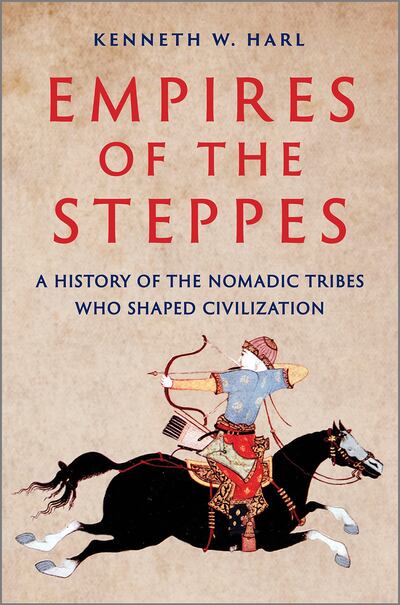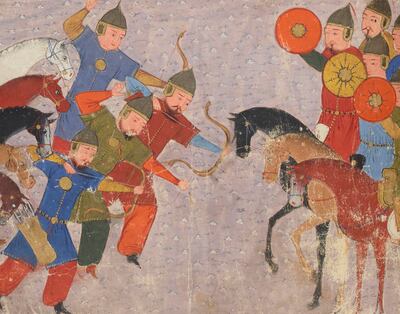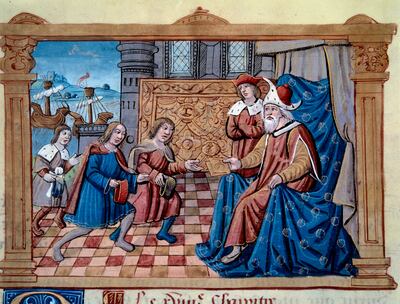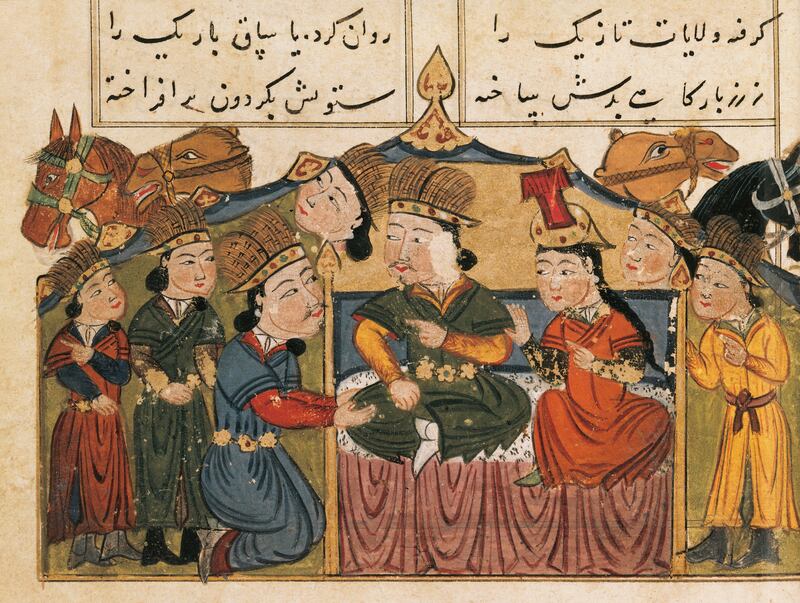Mention the names Attila the Hun, Genghis Khan or Tamerlane, and the picture that typically emerges is of angry hordes of warriors on horseback, galloping across dusty plains on a mission to plunder and kill.
Missing from such crude sketches is the sophisticated role these nomads played in spreading technology, ideas and religion across the world.
“Unfortunately, because we don’t have much in the way of writing from these people, at least from themselves, there is a tendency to always look upon them as the outsiders, destroyers of civilisation,” says professor Kenneth W Harl, author of Empires of the Steppes: A History of the Nomadic Tribes Who Shaped Civilisation.
Harl also blames advertising and Hollywood – which when tackling historical epics likes to have “barbarians” lurking there.
“It is hard to overcome those stereotypes. Even in history textbooks in the United States, these people are scarcely mentioned. The Huns might appear as the scourge of God – Attila the Hun. The Mongols might be known, but many people in the West don’t really have much knowledge of these people, and they are all lumped together as barbarians,” he says.
There are historical records offering glimpses into the mindset of these peoples. There is The Secret History of the Mongols, the earliest surviving work in Mongolian about Genghis Khan. The Orkhon inscriptions in Mongolia also offer clues.
“These are monuments that are the earliest examples of Turkish, and there is actually a very good copy of it in the garden of the museum of the Anatolian Civilisations in Ankara today,” Harl says.

The professor, who lives in New Orleans, has tried to write from the perspective of the nomadic people, who have largely been known by the writings of their opponents or victims.
“I am not an apologist for what Genghis Khan committed against the cities of Transoxiana, or massacres that went on in North China. These were actions that even to the people at the time were seen as really out of bounds,” he says.
Harl says that in the wars between clans and tribes, the defeated were often massacred, because the victors didn't have the means to feed them. “When this is applied on a grand scale to break the resistance of cities and sedentary civilisations, you get atrocities that moderns would call essentially genocidal,” he says.
Nomadic Legacy
But there were also important achievements, he notes, above all by the Mongols. Take paper currency, invented in China, which was introduced by the Ilkhanids – the south-western branch of the Mongols – into the Islamic world. But that is not all.
“The most devastating one is the transmission of gunpowder from China – which leads to the military revolution, which eventually puts the steppe nomads out of business, militarily – that sees the invention of the cannon and then hand-held firearms.”

The legacy of the nomads survives into the present era. Harl worked in Turkey for 25 years, excavating ancient sites, and caught glimpses of the steppes in everything from political rhetoric to culinary heritage:
“Yoghurt comes from the steppes and that has been mixed with the Mediterranean grilled-diet to create a much more varied diet than you would have in neighbouring Greece, which hasn’t had the same influences," he says.
Harl worked in Greece and moved to Turkey, describing it as one of the “best decisions” he made professionally, because there was so much more to do. He also met his future wife in Turkey. He recalls it took about a year and a half to get all the paperwork in order before they could tie the knot.
"If you marry a foreign national as a US citizen you better really love that person because the US government puts you through the wringer. They investigated me even more than they investigated her,” he says.
Having married late in life, he notes that “up until the current generation, more than half of all scholars in the classics never married because they are so devoted to their work. They didn’t have time for family.”
Harl had accepted that as part of his vocation, seeing his work as a lifetime dedication to understanding people of the past.
“I have always felt that I am not very important as an individual, what I do is important,” he says.

Still, marriage has professional upsides, too.
“I learnt a lot more about Turkish history being married to her than my years travelling to Greco-Roman sites,” he says with a laugh.
Raconteur of history
Besides writing, Harl, who retired last year as professor in Classical and Byzantine history at Tulane University, has also recorded 11 series of lectures for The Great Courses by The Teaching Company – a notable producer of long-form audio and video lectures. Harl covered diverse topics such as The Vikings, The Ottoman Empire and Alexander the Great and the Macedonian Empire.
There is also a series about the nomads – The Barbarian Empires of the Steppes – recorded around 10 years ago to meet customer demand for a course about the Silk Road. It proved to be popular.
“I was approached by an agent in London who suggested that I return to that topic and write a book about it. And in those 10 years I have learnt a lot more, and I rethought a lot of my ideas from that course I recorded,” he says.

A case in point is Kublai Khan, who Harl says was perhaps even more significant than his grandfather Genghis Khan. “I failed to appreciate until I wrote the book how Kublai Khan united China for the first time in 400 years. One wonders if he had not conquered Song China, whether China would have ever reunited and become the world power we see today,” he says.
Each lecture was 20 minutes, which Harl says forced him to leave out a lot of information. However, in writing there is more opportunity to give detailed explanations.
It took Harl two years to complete Empires of the Steppes, and he is already working on his next book, which looks at the Middle East before Islam, stretching from 3000BC to the arrival of Islam and the Rashidun caliphs.
“I have a final chapter talking about the synthesis, say in the reign of Harun Al Rashid – the height of the Abbasid caliph – how these civilisations contributed to the high civilisation of Islam,” he says.
“That then becomes the basis for the Middle East today. And again, it would be along the same theme of Empires of the Steppes: what is the continuity and change from these earlier civilisations?”






